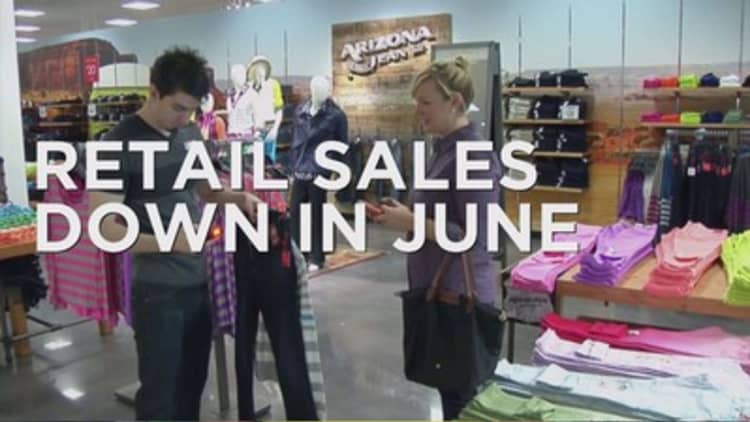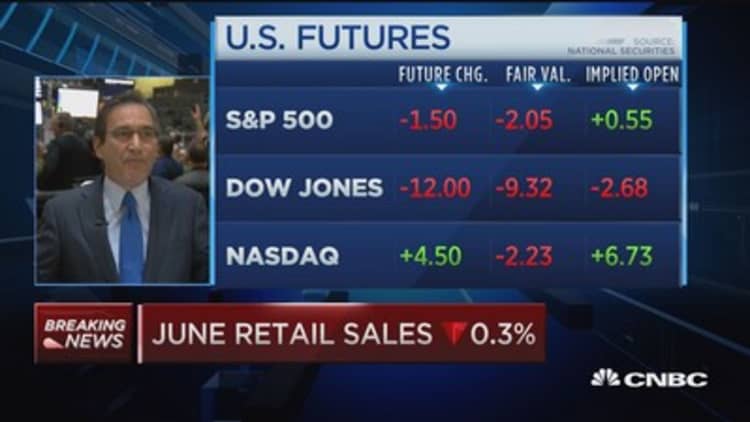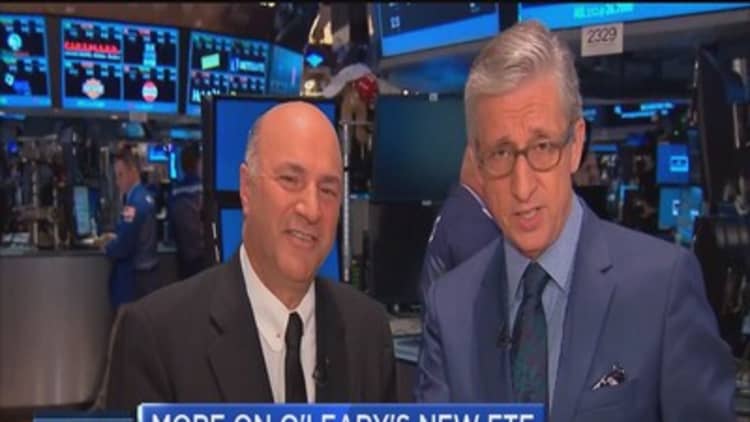


U.S. retail sales unexpectedly fell in June as households cut back on purchases of automobiles and a range of other goods, which could raise concerns the economy was slowing again.
Stocks extended losses in premarket trading and Treasury yields dropped on the news. The dollar added to losses against the euro and the yen.
The Commerce Department said on Tuesday retail sales slipped 0.3 percent last month, the weakest reading since February. May's retail sales were revised down to show them rising 1.0 percent instead of the previously reported 1.2 percent jump.
Read MoreFaber: This is the biggest threat to our global economy
Economists polled by Reuters had forecast retail sales rising 0.2 percent last month.
Retail sales excluding automobiles, gasoline, building materials and food services dipped 0.1 percent after an unrevised 0.7 percent increase in May.
These so-called core retail sales correspond most closely with the consumer spending component of gross domestic product.
Coming on the heels of June's disappointing employment report and sharp drop in small business confidence, the weak retail sales data suggests the economy might have lost some momentum at the end of the second quarter, having struggled at the start of the year.
The soft data could cast doubts on a possible September interest rate hike from the Federal Reserve.
Economists had forecast core retail sales rising 0.4 percent.
Read MoreUS import prices unexepctedly slip in June
Sales last month were broadly weak, with receipts at auto dealerships falling 1.1 percent after rising 1.8 percent in May. Clothing stores sales dropped 1.5 percent, the largest decline since September 2014.
Receipts at building material and garden equipment stores fell 1.3 percent and sales at furniture stores declined 1.6 percent, the biggest drop since January last year.
There were also declines in sales at online stores and at restaurants and bars. Rising gasoline prices supported sales at service stations, where receipts rose 0.8 percent.
Sales at electronics and appliance stores rose 1.0 percent, the biggest rise since September.
"The immediate reaction in Treasurys – a rally – seems appropriate however we aren't sure the drop in sales changes the larger narrative from the Federal Reserve's standpoint," Dan Greenhaus, chief strategist at BTIG, said in a statement. "The consumer isn't very strong and by extension, neither is the U.S. economy. Today's report doesn't alterthat view in any respect."
—CNBC contributed to this report.

